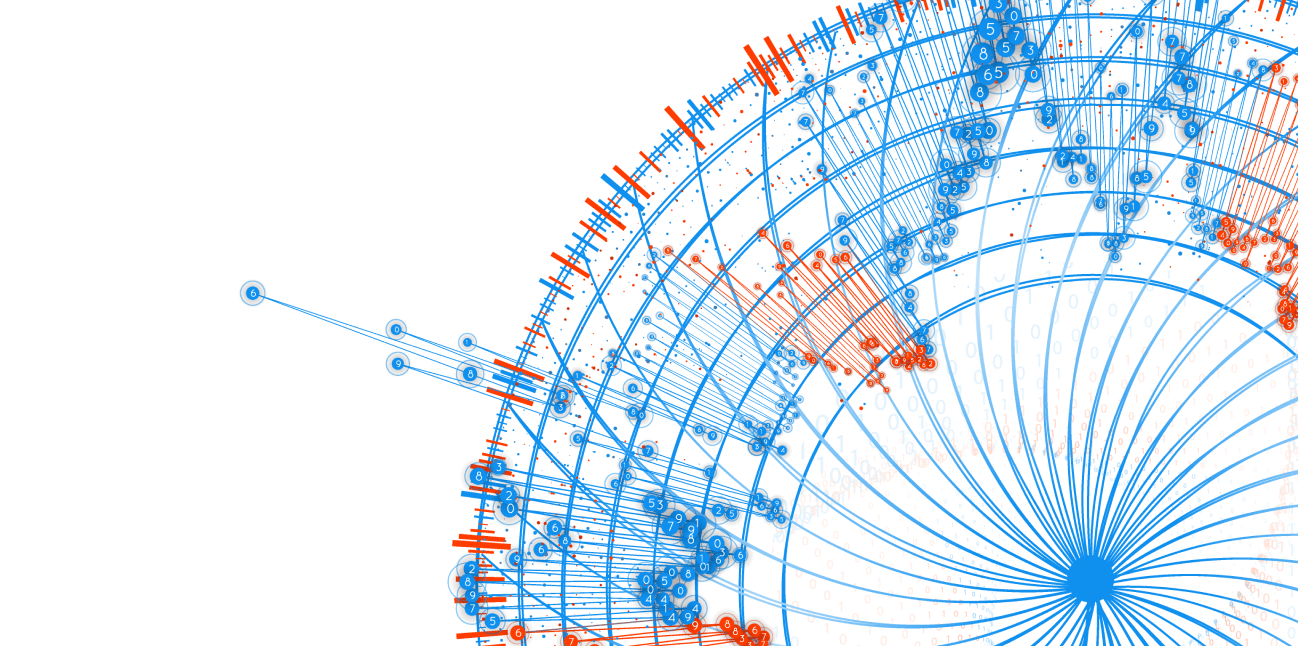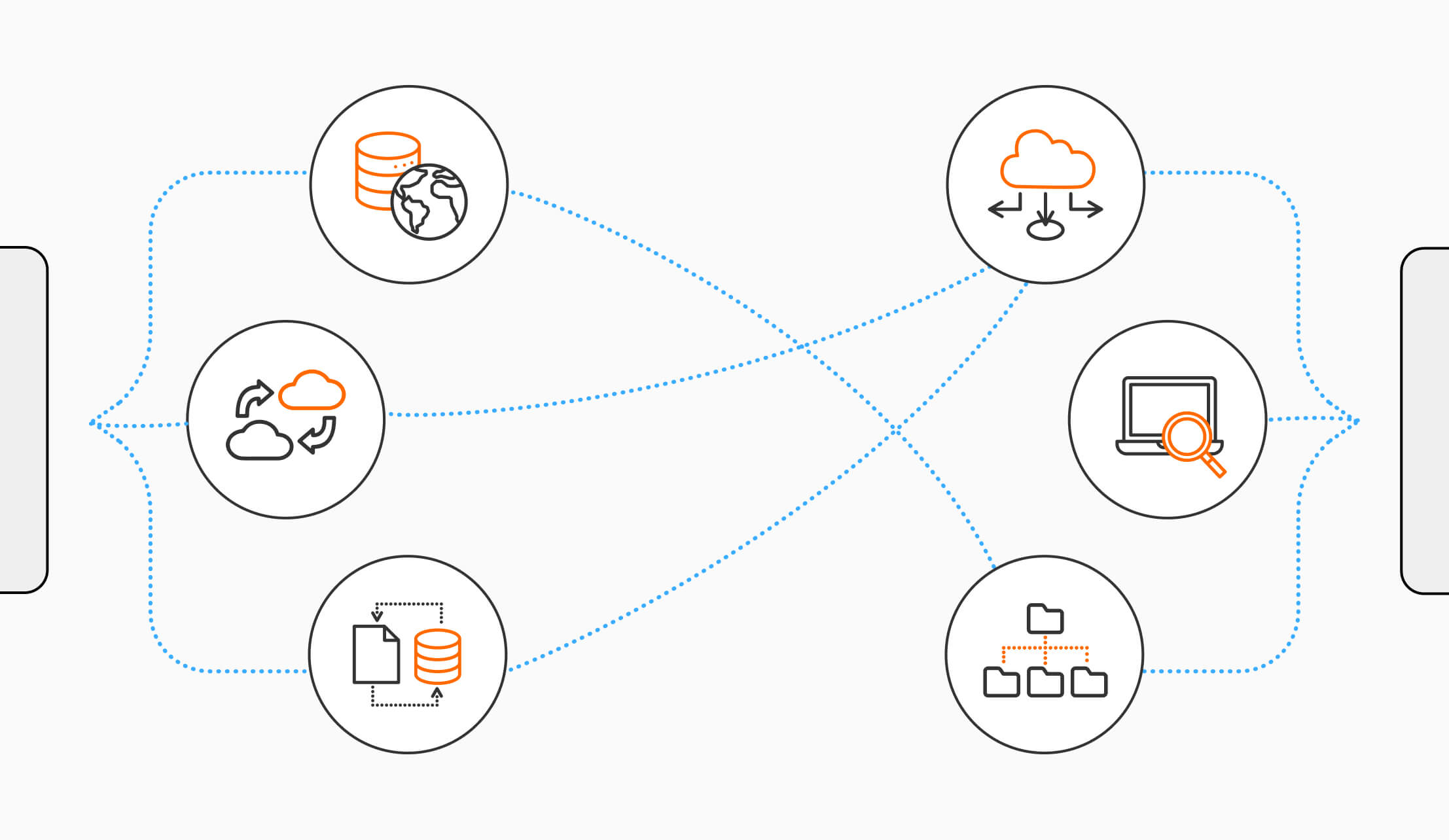Industry: Healthcare
Country: US
Project type: Analytics Platform
Duration: Ongoing

Industry: Healthcare
Country: US
Project type: Analytics Platform
Duration: Ongoing
Zoadigm is a game-changing healthcare-augmented intelligence and network coordination company. Their growing provider network and strategic engagements with leading medical specialists place Zoadigm at the forefront of innovation in the field.
Zoadigm’s mission is to revolutionize healthcare data analysis and empower networks of clinicians, payers, and patients with insight and actionable intelligence. By harnessing cutting-edge technology, Zoadigm is driving positive change, improving efficiencies, reducing costs, and enhancing patient care.
Many healthcare organizations struggle to consolidate data trapped in multiple disparate record systems. Without such data consolidation, reproducible analysis and prediction from heterogeneous sources are impossible. Zoadigm’s project goal was to address this challenge, which is faced by all actors in the healthcare system.
Zoadigm partnered with Edenlab to build a solution that would enable healthcare organizations to gain actionable insights into patient cohorts, treatment pathways, and payment models. This solution would allow data analysts, clinicians, and payers to build complex and interactive patient cohorts, pathways, payment model analyses, and visualizations, revealing previously hidden insights into patient treatments and costs.
Given its widespread use and interoperability benefits, Zoadigm chose the FHIR (Fast Healthcare Interoperability Resources) standard as the main data format for their platform. However, this posed a major challenge due to the complex and highly-nested nature of FHIR, which makes its implementation within typical relational data models difficult.
For example, an Observations resource may contain references to other resources, such as Patient resources, representing information about a patient, such as name, contact details, address, etc. Each resource may contain further references to related resources, creating a complex network of nested data.
This nesting makes it challenging to aggregate and analyze data across multiple resources, particularly with large volumes of data. In addition, the relationships between resources can be difficult to understand and map, making it hard to identify and analyze data patterns. To address these challenges, developers building analytics on FHIR data need to be familiar with the structure and relationships of FHIR resources, as well as the different types of data they contain.
Incomplete or inaccurate data can hinder the effectiveness of data analysis and lead to misleading or incorrect insights. Often, doctors don’t record the date when a person finished their treatment, or the patient stops going to the doctor when they feel better. To address this issue, the Edenlab team needed to build algorithms that help determine the duration of a treatment with a confident degree of certainty.
A key challenge in developing data visualization functionality is providing interactivity and enabling users to easily navigate multi-dimensional data. Edenlab needed to ensure the platform would allow users to interact with the data, explore different dimensions, and drill down into specific subsets of data.
Another critical challenge during development was achieving fast query execution to ensure real-time interactivity. Large datasets can significantly slow the responsiveness, leading to a poor user experience.
The Edenlab development team also had to determine how easy and intuitive the platform would be for end users and minimize the learning curve. Recognizing that many potential users may lack technical expertise or data analysis skills, we focused on designing a visually appealing and easy-to-navigate user interface.
Focusing on scalability and robust infrastructure, our team deployed the Kodjin FHIR Server, leveraging its fast, asynchronous, and easily scalable microservices architecture to easily handle large volumes of healthcare data.
Data integrity was paramount, and Kodjin validates resources upon upload, ensuring conformance with the FHIR specification and addressing errors and inconsistencies within data. In line with handling sensitive patient information, we rigorously adhered to HIPAA guidelines to protect data privacy and security throughout the project.
To enable efficient data analytics, our team employed an analytical model supported by ClickHouse, a powerful column-oriented database management system. ClickHouse’s robust capabilities allowed our FHIR-specialized data analysts to decompose complex, highly nested, and graph-like FHIR data into a structured database format.
By optimizing data storage with ClickHouse, we sped up queries and made it quicker to extract valuable insights from Zoadigm’s dataset.
To provide clinicians with a multi-dimensional view of clinical data, we integrated semantic layer and hypercube capabilities into Zoadigm’s platform. The semantic layer provides a ubiquitous language, based on FHIR, that is readily understandable by non-technical users. This language is automatically translated into complex queries by the platform. Using this semantic layer API based on FHIR, we developed two core components: the Cohort & Pathway Builder and the Cohort & Pathway Explorer.
The Cohort & Pathway Builder allows clinical data analysts to define cohorts based on customized filters and parameters, generating building blocks for further analysis. They can query the data, filter, and group it in various ways, and optimize the queries to reduce query times for large datasets. Analysts can set up dimensions like time, category, number, and location to refine data analysis.
The Cohort & Pathway Explorer provides dynamic and interactive visual tools like dashboards to delve into these custom cohorts. This allows clinicians to uncover hidden patterns and gain actionable insights. The platform keeps data up-to-date automatically.
Leveraging these two platform components, clinical, payer and research organizations can delve deep into their data, uncover trends, identify opportunities for improvement, and make data-driven decisions that positively impact patient care and organizational performance.
The Zoadigm platform developed by Edenlab allows healthcare users to gain new insights into patient cohorts, treatment pathways, value, and clinical research, addressing the challenges of data unification and process orchestration faced by clinical, payer, and research organizations in the healthcare industry. HIPAA procedures were also adhered to, ensuring patient data was protected and compliant with regulations.
To further improve Zoadigm’s platform, we’re focusing on value-based and episodic care, emphasizing the importance of patient outcomes and comprehensive treatment analysis.
By incorporating value-based care principles into Zoadigm, healthcare providers will have the tools to deliver more effective and efficient care, ultimately leading to improved patient experiences and outcomes. For example, managing episodic care contracts will streamline collaboration among healthcare professionals, eliminating redundancy and boosting care quality.
We are also working on enhancing the platform’s data processing capabilities. Our team is actively working on improving the Extract, Load, and Transform (ELT) process to support the development and deployment of augmented intelligence models. This will facilitate the use of analytic, predictive, and prescriptive models.
Lastly, Edenlab plans to use the FHIR Patient API to gather patient data from non-Zoadigm clinics. This initiative aims to provide a comprehensive and holistic view of patient care, enabling healthcare professionals to make well-informed decisions based on a 360-degree perspective of the patient’s health journey.
Interested in discovering the full capabilities of the Zoadigm platform?
Contact us to schedule a free demonstration with Zoadigm’s and Edenlab’s teams. We’ll tailor the demo to focus on features most relevant to your project needs.




Edenlab created for Elation Health a solution that bridges the gap between their existing data standards and the FHIR requirements. Through Edenlab’s expertise and support, Elation Health successfully achieved ONC certification, implemented USCORE 5.0.1 support.